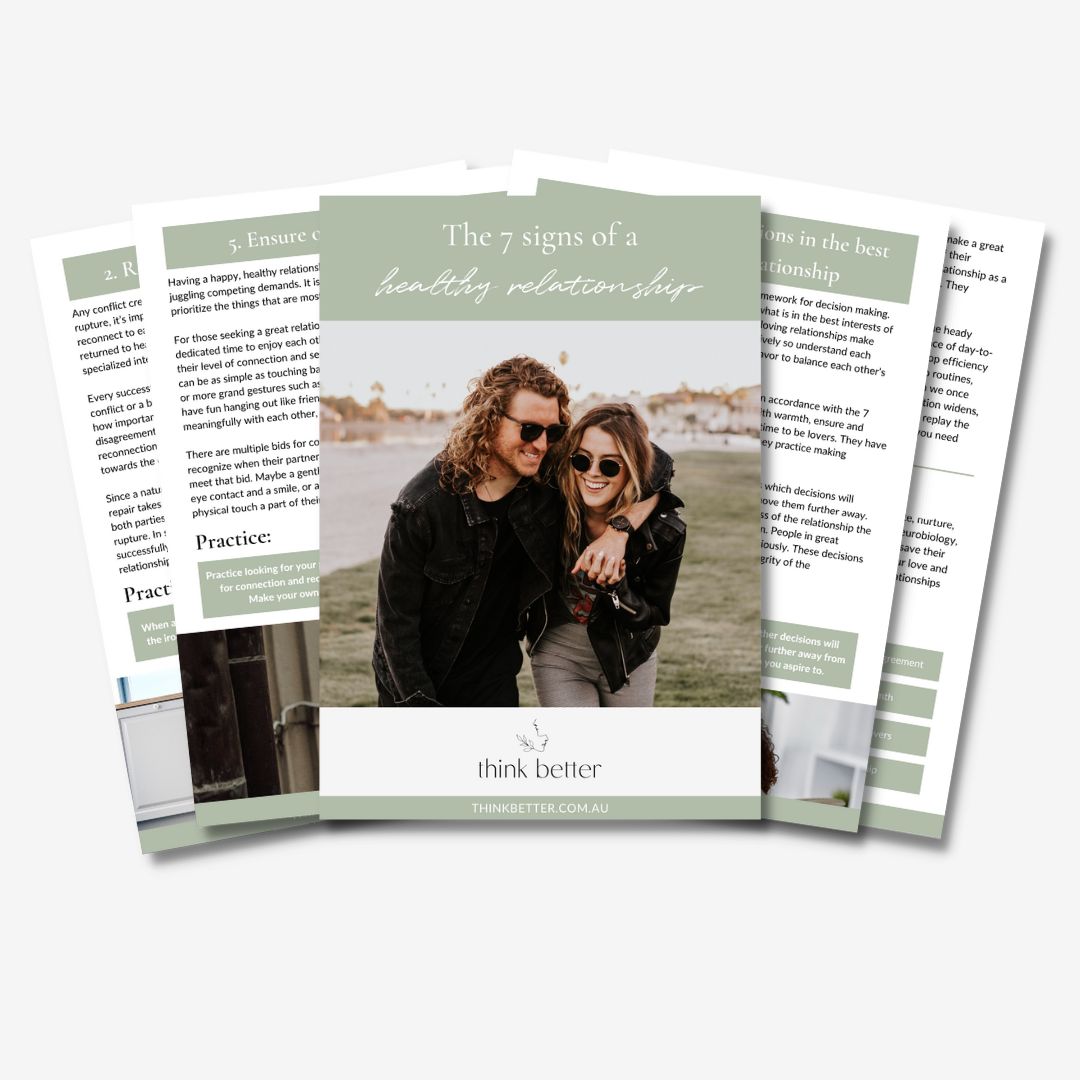If you find yourself feeling overwhelmed, exhausted, and resentful you may be having trouble setting boundaries. Setting boundaries is a crucial relational skill which enables you to manage your happiness, time and energy. Unfortunately, many of us are not taught how to have and maintain clear boundaries so setting them is hard and upholding them is even harder.
Boundaries are your unique set of rules for:
- how and when people can interact with you
- what people can reasonably expect from you
- what you are prepared to accept from others and under which circumstances
- how people can best show respect and care for you.
Your boundaries are unique to you, specific to your circumstances, and are to be honoured and upheld by you. Boundaries are lines which are not to be crossed and if they are crossed there are clear consequences that have been stated and are acted upon.
To use an example, let’s take a common issue couples may face. We’ll call our couple Jamie and Aaron. Jamie and Aaron agree to a household budget which comes out of their joint account and includes an amount for entertainment. After several months and repeated conversations Aaron is still regularly spending hundreds of dollars over the budgeted amount for entertainment. Jamie has explained to Aaron his spending is not leaving enough in the joint account for utilities, so Jamie puts in a boundary. If Aaron continues to spend over the budget he will have to pay the utilities himself or they will have to close the joint account and keep their money separate.
Why are boundaries so hard?
In an ideal world you could just state your needs and preferences and people would respect your boundaries. Unfortunately, that is not always the case. We each have been taught about boundaries, usually indirectly, by those around us. This begins in childhood. If you had caregivers who routinely overrode, dismissed, or disagreed with your needs and emotions, and didn’t respect your autonomy and space, your boundaries may be quite fluid or non-existent. Alternatively, if your caregiver regularly stated a consequence but didn’t follow through you may have learnt to push the boundaries of others until they collapse. What a child learns about boundaries in childhood most often extends into adulthood.
Poor boundary modelling can lead to several behaviours detrimental to your wellbeing and the health of your relationships. Perhaps you engage in people pleasing and putting others needs before your own. You may not even realize you have an issue with boundaries until you become exhausted, unwell, resentful or your relationship/s becomes unmanageable. Perhaps you test others’ boundaries if things don’t go your way, you don’t get what you want or you think you know better. When you push harder you may get your own way for a time, but you may also find people start to avoid you.
3 steps to easier boundary setting
The first step to setting clear boundaries is identifying your needs and preferences. On a practical level, Jamie had a need for certainty that the agreed upon expenses could be covered from the money they each contributed. On an emotional level, Jamie had a need for trust and respect in the relationship which felt compromised each time Aaron disregarded their agreement. This placed a strain on the relationship and caused a rift in their connection. Before Jamie set the boundary he regularly felt annoyed and frustrated with Aaron which manifested in sarcastic comments. Aaron in turn felt the relationship issues were more about Jamie being sarcastic and lacking generosity rather than taking his extra spending seriously.
The second step is to become comfortable with the validity of your boundaries and to clearly communicate them with the relevant people. This avoids behaviour arising from resentment such as Jamie’s sarcastic comments. Too often people allow their boundaries to be repeatedly crossed and don’t say anything for fear of rocking the boat. This may work in the short term but leads to increased resentment and often the issue gets worse. You need to have a calm conversation about the issue and your boundary. No one can know your boundaries if you haven’t articulated them.
The ultimate step is to be mentally and emotionally prepared to uphold your boundaries, and do so if your boundary has been crossed. Holding others accountable to your boundaries is crucial for your own integrity. A boundary is not a boundary if it is not defended. It is your job to say no, this must stop, this doesn’t work for me. Consider what it is that you need to say and do to protect your boundary. The person who most needs to respect your boundaries is you. Others will follow your example.
A boundary is not a boundary without a consequence
Following through with a consequence is a crucial step that many people miss. If you do not follow through with a consequence it will lead to more relational difficulty as that person learns you are not to be taken seriously. Put simply a boundary is not a boundary unless there is a consequence. It is simply an idle threat. Each time you uphold a boundary you teach people how to treat you. When you do not uphold a boundary you push your needs and preferences aside in favour of another’s. If you do this long enough you will become exhausted and resentful. Exhaustion occurs when we have taken on too much. Resentment is often a sign post that we have needs that are not being met.
Boundaries are a crucial relational skill which, done well, provide everyone with clarity, integrity, and respect. Boundaries may be hard, but they are worth the effort to learn.




0 Comments